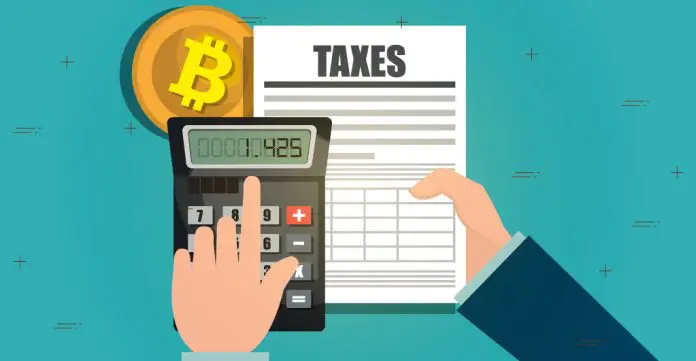
If you were happily daydreaming about avoiding taxes by trading in Bitcoin, then snap out of it right now. The IRS (Internal Revenue Service of the US) has stormed into the Bitcoin scene by dispatching letters to every Bitcoin trader in the US to make them pay the Bitcoin tax. That’s right! Bitcoin trading is no longer an unprofessional non-taxable side income. It is now mandatory for every cryptocurrency trader to calculate and file tax reports on Bitcoin capital gains. Read on to gain a better insight into Bitcoin taxes.
How Is Bitcoin Taxable?
Bitcoin and every other cryptocurrency are to be considered as a property as per the rules and regulations of the IRS. As such, every general tax principle and regulation will be applicable to cryptocurrencies, including Bitcoin. The IRS has made it mandatory to report the following transaction activities under the Bitcoin tax regulations:
- Trading cryptocurrencies against fiat currencies
- Trading between cryptocurrencies
- Mining of cryptocurrencies
- Receiving payments in cryptocurrencies for goods and services
However, taxable events do not include buying cryptocurrencies, inter-wallet transfers, sending gifts in Bitcoin, and holding Bitcoin.
How to Pay Bitcoin Tax?
The following are the different ways of paying Bitcoin taxes:
1. When Bitcoin is used for paying for goods and services, it is income tax
If an employer pays the employees with Bitcoin, then he must file a report of the employee income to the IRS with the help of W-2 forms. Convert the value of Bitcoin into dollars on every date of making payment, and maintain records. Employees have to report the income as well in W-2 forms.
2. Bitcoin that is held in the form of capital assets is property
Property taxes have to be imposed upon Bitcoin that is being held as a capital asset by the owner. Similar to bonds and stocks, any loss or gain from the exchange or sale of the Bitcoin assets is a capital loss or capital gain. And this capital loss or gain has to BE duly filed for taxes.
3. The Bitcoin miner has to report the income receipt
Bitcoin miners use computer resources for validating Bitcoin transactions and maintaining the Blockchain ledger. The Bitcoin miner has to file his earnings for his mining service after converting BTC into dollarS. If the miner is a self-employed individual, then he has to file his gross income from mining in the report to pay the self-employment tax.
How to Calculate Bitcoin Tax?
Follow the steps elucidated below for the evaluation of Bitcoin taxes. You can also use Bitcoin tax software applications like CryptoTrader.Tax for automatic calculation of Bitcoin taxes.
Step 1: Understand if the crypto transaction is a taxable event or not
A taxable event is a particular transaction in Bitcoin and cryptocurrencies that incurs a tax liability. The IRS lays down clear guidelines for distinguishing between taxable and non-taxable events.
Step 2: Determine the cost basis
Estimate the cost basis of your Bitcoin holdings. The cost basis is the amount of money used for purchasing a property. For Bitcoin and cryptocurrency assets, the cost basis includes the purchase price and the costs of buying Bitcoin. The simple formula is:
Cost basis= (Purchase price of Bitcoin + other costs)/ (Quantity of the crypto holdings)
Step 3: Estimate the capital loss or gain
Calculation of capital gain or loss is the final step. The Bitcoin tax is to be paid on this value. The simple formula is:
Capital gain/loss= Full market value-cost basis
What Are the Most Effective Tips for Minimizing Bitcoin Taxes?
The following tips will certainly help in reducing the Bitcoin taxes. Check them out right now:
1. Open an IRA or Crypto 401 (k) retirement account
The retirement accounts like 401 (k) or IRA are remarkably lucrative. These accounts come with tax incentives and help to preserve the profits against taxation. A cryptocurrency retirement account is an effective tool for tax reduction that can help to defer the payment of taxes.
2. Employ specific identification costing method
This method is ideal for calculating capital losses and gains, given that there are records that particularly identify the cryptocurrency. It applies tax minimization algorithms such as Last In First Out and Highest In First Out. These algorithms can drastically reduce the taxes on Bitcoin capital gains.
3. Hold the Bitcoin for more than a year
If you hold on to your share of Bitcoin for over a year, then you will be considered for the long-term Bitcoin capital gain tax rate, which is always lower than that of the short-term. The short-term tax rate is higher and applies when the owner trades in his Bitcoin share in less than a year.
4. Invest the capital gains in an Opportunity Zone Fund
Register with an Opportunity Zone Fund for tax cuts and reduction in Bitcoin taxes. This method is especially beneficial for investors who rake in huge capital gains.
Conclusion
Be sure to file the Bitcoin tax report to avoid legal liabilities. If you avoid paying taxes or evade tax regulations, then you will have to pay dearly for the offense. Estimate the Bitcoin taxes carefully and maintain an accurate record of the same to continue trading in Bitcoin most securely. Apart from that, If you are a Bitcoin love or Bitcoin supporter then you must know about the most unique trading platform – Bitcoin Aussie System. It is the platform that mainly focuses on profit from Bitcoin trading. You can check out Bitcoin Aussie System Review for more details on this unique platform.


